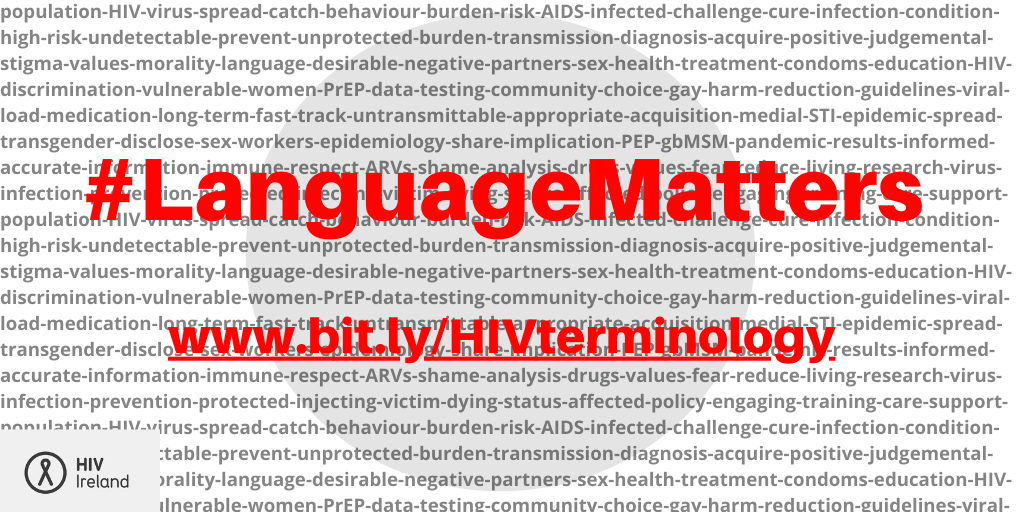We have seen significant advancements in HIV treatment and prevention in recent years. However, the language used when talking or writing about HIV is often out-dated and stigmatising. Challenging and eliminating HIV-related stigma is a guiding principle of HIV Ireland and we understand the role appropriate language use has in this.
To coincide with Zero Discrimination Day 2020, we updated and re-published our HIV Terminology and Appropriate Language Use Guidelines, together with the launch of an online #LanguageMatters campaign.

Campaign Messages:
- Sometimes language used about HIV can be stigmatising, sometimes it can be judgemental, and sometimes it can be inappropriate. Our HIV Terminology Guidelines encourage more respectful, inclusive and person-centred language.
- #LanguageMatters when talking with, or about, a person living with HIV. The words we use can objectify a person, devoid of thought or feeling. Using people first language is a huge part of ending the stigma.
- Language can convey blame, shame, and oppression. We all have a responsibility to consider the language we use and challenge terminology we think is inappropriate. Our HIV Terminology Guidelines can provide support & guidance.
- When talking or writing about HIV, we encourage the use of language that is inclusive, respectful, non-stigmatising and non-judgemental. Our HIV Terminology Guidelines can provide support and guidance.
- Incorrect language use can fuel myths about HIV and some expressions can be out-dated and stigmatising. Our HIV Terminology Guidelines can provide support and guidance for more respectful language and preferred terminology.
Our HIV Terminology Guidelines are a continuous work in progress. We welcome suggestions to promote respect, inclusion and more appropriate language.
